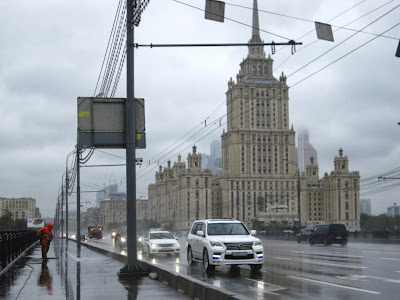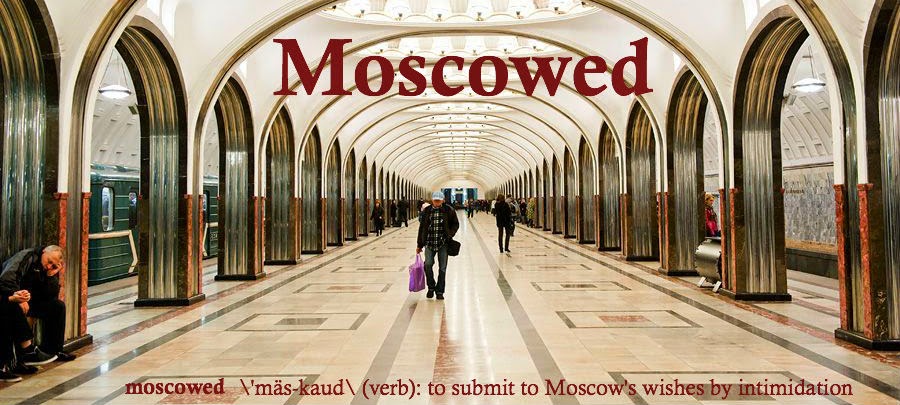I usually travel by metro, but when I need to get somewhere between the hours of 1am and 6am when the metro isn’t running, I often resort to gypsy cabs. A gypsy cab, or a
bombila in Russian, basically boils down to a dude with a car who wants some extra cash. If you step off of any Moscow curb and raise your hand, you will immediately find a line of cars ready to take you wherever you need to go. I swore off gypsy cabs a few months ago, reasoning that I would never do that in America, and even managed to blunder through ordering a few licensed taxis by telephone in the interim. Unfortunately, my gypsy cab habit is proving harder to kick than I realized.
I went out with a group of friends last night, and around 5am we decided to call it a night and go our separate ways. Even though one of the girls and I were going in completely different directions, we climbed into a taxi together and explained to the driver we’d be making two stops. When he tried to jack up the price we’d agreed upon, I became incensed and demanded he turn on the meter. After much back and forth, I told him that if he didn’t turn it on, I would get out and walk home. Unfortunately, he wasn’t moved by my threats, and did in fact pull over. Not wanting to admit that I had been bluffing about my eagerness to walk two miles in the snow, I grabbed my purse and my misplaced principles and stormed off.
Before I had even raised my hand, two Russians had pulled over, sensing a potential gypsy fare. The first, a middle-aged man with a mullet, was willing to take me home for less than half of what the taxi driver was trying to charge me, so I climbed in, feeling optimistic that he wasn’t the next
Chessboard Killer. Yura proved to be quite amiable, but our conversation was hampered by my inability to understand the word “wind,” which was apparently crucial to his story.
Me: What are you talking about?
Yura: Weather. It’s weather!
Me: You want to know what the weather is like? It’s cold.
Yura: No, I’m trying to help you understand the word I am saying.
Me: I don’t know what’s happening!
Yura: What do they have in Louisiana?
Me: Hurricanes?
Yura: Yes. Hurricanes are kind of like wind.
Me: Why are we talking about hurricanes?!
Yura: We aren’t!
I never did figure out what he was trying to tell me because at that point I realized I only had thousand rouble notes in my wallet, and not having proper change is the surest way to get ripped off by a gypsy cab driver. I interrupted Yura, who was spiritedly trying to pantomime his point across, and explained my predicament.
Yura: I only have 500 in change.
Me: I’m not paying you 500 roubles. I just told someone I would walk home because they tried to make me pay 500 roubles.
Yura: Is there a store near your flat?
Me: Uh…
Yura: A store. A STORE!
Me: I was thinking! There’s a café.
Five minutes later, we pulled up to my building and I went into the Shokoladnitsa to get change, which involved a very roundabout explanation on my part. I ran back to Yura, handed over the agreed upon 200 roubles, and thanked him profusely. He bid me adieu, but not before giving me a quick Russian language lesson.
“You keep saying you can ‘transform money,’ but that’s the wrong verb. You want to say ‘change.’”
Wonderful. I sound foolish enough in this country, and I very nearly added delusions of wizardry into the mix. Thank god Yura corrected me—that mullet-loving bastard just re-instilled my faith in the entire gypsy cab institution. I’m sure this will end well, and not with my severed head being found in a park when the snow melts in July.














































